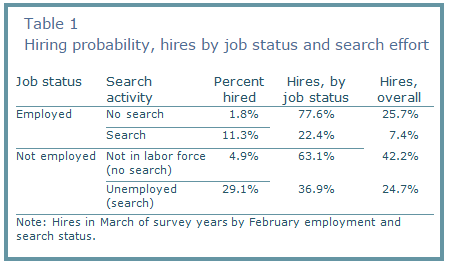HRE Column: On Recruiting and the Technology Transformation
Here is my semi-frequent reminder and pointer for blog readers that I also write a monthly column at Human Resource Executive Online called Inside HR Tech that can be found here.
I kind of liked this month's column, (I suppose I like all of them, after all I wrote them), but felt like sharing this one on the blog because it touches upon what has been in the past a pretty popular topic wit h readers here - the kinds of transformations that organizations can drive via the application of modern HR technologies.
h readers here - the kinds of transformations that organizations can drive via the application of modern HR technologies.
Here is an excerpt from the column, The Recruiting Technology Transformation:
Technology continues to fundamentally transform how, where and when work gets done, and the ways that HR leaders can drive improved business performance. In the HR tech world, recruiting technology is helping to drive that transformation and is making the recruiting function perhaps the most transformed of all HR disciplines.
This phenomenon was on display at a recent event I attended, HireVue’s Digital Disruption in Park City, Utah. At the event, numerous HireVue customers—spanning a wide variety of industries, including banking and finance, airlines, publishing and national retail chains—shared how technology has impacted and, in some cases, radically altered their talent-acquisition efforts.
Just a few of the examples from the event reveal the potential benefits of adopting modern talent-acquisition technologies for organizations of all types and sizes:
Educational and general-purpose publishing company Houghton Mifflin Harcourt adopted a three-pronged approach to improving its ability to identify, engage and hire inside sales staff. That approach resulted in increased quality of hire, faster time to fill their open sales roles and improved business results, which were measured in how many new sales-team members were attained.
By redesigning the process to better identify the candidates most likely to succeed through a combination of a statistically validated online assessment, video interviews that replaced the former recruiter phone screens and consistently applied behavioral-interviewing techniques for the candidates who passed the assessment and video screen, HMH was able to show top-line and bottom-line ROI.
The general lesson from this story is this: Applying modern tools and technologies to the talent-acquisition process, particularly for revenue-generating roles, provides HR and recruiting leaders with one of the best ways to help drive organizational results. In this example, HR could show how it was a significant contributor to sales and profits, and not just an administrative cost center....
Read the rest over at HRE Online
Good stuff, right? Humor me...
If you liked the piece you can sign up over at HRE to get the Inside HR Tech Column emailed to you each month. There is no cost to subscribe, in fact, I may even come over and wash your car or cut the grass for you if you do sign up for the monthly email.
Have a great Wednesday!
 HR,
HR,  Technology tagged
Technology tagged  HR Tech,
HR Tech,  Human Resources,
Human Resources,  Recruiting,
Recruiting,  Technology
Technology  Email Article
Email Article 
 Print Article
Print Article 


